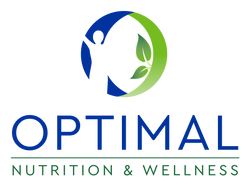We often hear people refer to living holistically or practicing clean living, but have you ever put much thought to what holistic living actually means? For most of us the concept has been completely foreign. Some view it as just chugging down a handful of vitamins, while others incorporate it into only one area of their lives, such as the food they choose to eat. Other very fortunate individuals were brought up knowing their whole body, including what they put into it, how they make it move, and what they remove from it makes a difference in their health.
Many have been lulled into believing that our food and drug sources are safe and healthy if it has governmental approval on the label. We’ve substituted busy-ness for productivity. We fill our spiritual emptiness with “stuff,” thinking we will be satisfied. Our physical activity level is often nothing more than sideline coaching from our couches or casually shopping at the mall. Is it any wonder that chronic disease has become “normal” for most Americans, and even for our children? If you’re guilty, raise your hand. Ok, mine is up, too.
A day of reckoning occurs physically when our health falls apart, emotionally when we just can’t deal with one more crisis, mentally when we struggle with depression or anxiety, and spiritually when we have no understanding or answers to life’s difficulties. The safety of our physical, emotional, mental and spiritual wellbeing rests in our conscious and intentional self care in those four areas of our life. When cared for properly, we enjoy and benefit from a balanced, nourished, and well-tuned body, mind, and spirit.
Think of it this way. A strong stool sits on four sturdy legs. If one leg is shorter or weakened, it wobbles. If it loses a leg altogether, well that’s not a stool I want to sit on. Our bodies resemble that stool in the four key areas of our lives. When all four parts are nourished, we have a very strong foundation. When one part is broken, we begin to experience problems and our body starts firing off warning signals. We can get away with some damage for a little while, but a quick correction curtails our bodies from negative consequences. Understandably, life situations frequently make maintaining that balance difficult so we constantly need to make adjustments, but our overarching goal remains to maintain all four areas with equal diligence.
Theoretically all this sounds easy, right? Then why do we fail so much? Why do we not accomplish what we set out to do? There could be numerous answers to that question, but first and foremost let’s ask ourselves if we truly believe all four areas need maintaining to achieve optimal health. My bet is that deep down we don’t see them all as necessary to experience wellness and therefore, they are not equal priorities. Let me give you an example. I believe with my whole heart that if I run out into a busy street that my health could be seriously impacted by being hit by a car. Therefore, I don’t run out into busy streets! I don’t want the negative consequences. In the same manner I must equally believe and understand that my health and wellbeing is seriously impacted by each of these four areas: nutrition, exercise, emotional stability and spiritual nurturing. To deny any one of these areas will deny us wellbeing. Generally, an individual will find one or two aspects easy to nurture, but we are all masters at making excuses for the other couple of legs to our not-so-sturdy stool!
So how do we become intentional to support our whole bodies? Let’s look at just a few possibilities. Take a few quiet minutes to really evaluate what you believe and examine your strengths and deficits. Perhaps your weaknesses are because you lack knowledge and information to know how to make your body stronger. Well, I have great news for you! There is a wealth of good information available on the internet and at your local bookstore or library. There are health practitioners equipped and eager to help you, there are trainers at your local gym, pastors in your churches and counselors available. There are friends who are possibly more experienced than you and willing to help you learn. Information has never been more within our reach than now. Take advantage of learning and growing in all four areas, and as my grandmother used to say, put some new wrinkles in that brain.
Armed with information proving the benefits of the four areas mentioned above, how committed are we to making them part of our lives? We can learn enough to believe the facts are indeed true, but are we willing to act on this information? Sadly, most of us believe that health and wellness are things we all deserve. The honest truth is health and wellness are things we earn with some of us having to work harder than others depending on genes, circumstances, and perhaps most importantly our own choices. And this, my friends, requires discipline, changing habits, and adjusting our comfortable lifestyles. As we now consider our attitudes and willingness to change, our next blog will discuss some quick and easy tips in each of these four areas.






